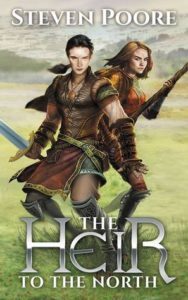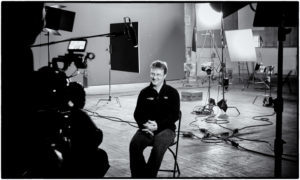Michael R. Miller's Blog, page 2
January 18, 2017
Writing Journeys – J.P. Ashman
So today mark’s the end of the first batch of posts from our amazing author guests, and we’re hearing from Mr. J.P. Ashman. Much of what I considered using for my intro is reiterated by J.P. in his post, however, I will add Ashman is one of those super readers who baffles me. He’ll be reading up to 4 epic fantasies at once on Goodreads and never seems to lose track… pretty neat trick.
 How I came to be writing the Black Powder Wars eh? Hmm…
How I came to be writing the Black Powder Wars eh? Hmm…
Fantasy. History. Warhammer. Whacking folk with swords and, more oft than not, being hit by them myself. I’d say those are reasons why I started writing fantasy, but Wifey was the ‘write a book’ instigator, that’s for sure.
When reading fantasy by your parents as a lad (lucky me, I admit), watching fantasy (The Dark Crystal etc.) and playing fantasy games (Hero Quest and Warhammer), you tend to have your head filled with such things most of the time. You talk about it too… a lot, and despite breaks from gaming or re-enactment, it never leaves your imagination!
Life goes on. You discover alcohol and clubs and motorbikes and women. You stop gaming for years, don’t re-enact as much as you’d like because of pesky jobs meaning you have to work weekends and one thing leads to another and before you know it, you’re in a serious relationship, buying houses, decorating houses, paying bills etc. But the fantasy is still there. The serious relationship brings you so close to that person that you talk about it again, more and more. You start to game again and you even take them to visit castles and the odd re-enactment. Fantasy is flowing back into your life like it’d never left – although the movies never had. Oh how I love the Lord of the Rings films and am thankful to the gods above and below that Wifey does too.
“I’d love to write a fantasy book one day,” I says to Wifey one evening. She tells me to do it. She’s like that is Wifey. If something needs doing, she can’t see why you can’t just do it? I mean, if Dave down the street can fit a kitchen for a living, why can’t she and, alas, me? So, fitting kitchens was learnt. Building decking with my brother whilst landscaping a garden was learnt. All sorts of DIY learnt, due to my relationship with Wifey. So why not writing a book? I always had the imagination for it and wasn’t too bad at English – my editor may disagree as he pulls his hair out, working through my latest manuscript.
“Just do it,” Wifey said. And I did.
Black Cross – First book from the tales of the Black Powder Wars was born, or rather a rough-as-a-Snorri-slaughtered-bear version of the current novel. I wrote it. I poured my imagined world – Brisance – onto page after page of pen scrawled scenes and dialogue and action and magic. I wrote a historic timeline and a bestiary and a list of characters as long as my sword-wielding arm. And I doubted it. I sighed, smiled at the fun of writing it and shoved it in a drawer.
Wifey and I married in a castle in Northumberland with all of our friends and family, and we shot off to Australia afterwards. What an experience! I might have shelved Black Cross, but I continued to soak up every sight and smell and sound I encountered until, well, until we made the huge decision one Christmas day to move 200 miles south to the Cotswold district of England. Wow! What countryside! What views and sights and sounds and peace…
Now as inspiring as living on a hill overlooking a Cotswold vale is, it wasn’t enough to restart my affair with Brisance and all its characters and creatures and plots and so on. No, that encouragement came from a self-published friend of mine, Christopher Thain. “You’ve written a book?” I asked him, all amazed and eager for someone to talk to about such things. Much was discussed and the wonderful world of self-publishing was explained to me. I’d never written Black Cross with a commercial end in mind. I’d written it because it was the story in my head. Simple as that.
I threw myself back into my manuscript and added new subplots and characters, weaving them into the story that, to me, felt like it needed an injection of the new me. I wrote and I sent it to friends and family to read, and read they did, again and again – poor souls. I eagerly uploaded it to Amazon Kindle and away I naïvely went.
Along came Mark Lawrence’s Self Published Fantasy Blog Off 2015. A competition designed to give self-published authors a chance to gain some recognition, and a chance for readers to see if there really were some self-published writers worth a damn. I entered. I just had to. I submitted my tome (even bigger than it is now) and eagerly waited for one of the ten reviewers to read it. I was blown away! Sarah Chorn at Bookwormblues.net gave Black Cross a 4* review and popped it through to her group final stage!
I didn’t get any further. Sarah rightly pointed out that Black Cross was in need of a professional editor. She loved the story, characters, political plot and magic system, but it fell short on editing. I was gutted… but not. My story hadn’t failed, I had, and I could live with that. I’ve seen myself as a story teller more than an English guru. I also received a wonderfully supportive message from Fantasy Faction’s Marc Aplin after Sarah’s review, telling me how great it was that my let down with Black Cross was fixable with an editor, rather than failing through poor characters or some such. He was dead right, but where the hell do you find an editor you can trust?
Luckily for me, my re-enactment days came to the rescue. An old friend of mine runs Crooked Cat Publishing, which publishes Historical Fiction. I asked her about editors and my fear of throwing my manuscript and money at a stranger. She pointed me to an editor she used often, who also enjoyed fantasy. Jeff Gardiner and I hit it off immediately. He not only helped chop thousands of words from Black Cross’s clunky beginning, but coached me through a myriad of questions I fired his way. He pointed out the good as much as the bad, which is important as far as I’m concerned, and we’ve continued to work together since. I couldn’t recommend having an editor enough, to any self-published author. It’s worth the money for a wealth of experience, an ear to bend and a guiding hand.
So what now? Well, Wifey and I have since had Freya, our little Norse goddess. I’m doing a diploma in optics for work. I’m doing all the usual chores at home and helping Wifey set up her own catering business. Life is hectic, tough, hard work and oh so tiring (as well as rewarding, of course), but there’s nothing like writing and editing Black Guild – Second book from the tales of the Black Powder Wars to escape the busy days. Oh, and I started playing Dungeons and Dragons after years of wanting to! I have a game in less than an hour, in fact.
As for my writing, I’d say I’m somewhere between an architect and a gardener, to use a popular phrase. I plan, then deviate and digress. The scenes I like the best are the organic ones where the characters genuinely make decisions for themselves. Sounds weird, but it’s true. I want Longoss to do something and he does something else; when writing that half-planned scene, it just doesn’t seem right for the brute to do x after y just happened, so he does z. And that’s just Longoss. When I come to duos like Sears and Biviano, or Correia’s pathfinders, all hell breaks loose, unruly bunch that they are. But that’s what I love about writing. Some authors may plan meticulously, like Peter V Brett, and it clearly works for him, but that’s not me. I like to roughly know what’s happening as a guideline and see how it pans out. It’s a fascinating subject and I look forward to the other authors’ posts on this blog.
Self-publishing is tough. It’s not the easy way a lot of folk think it is. Well, not when you do it properly like a lot of us do. There’s formatting to learn or pay for, editing to pay for, artwork to pay for – our host knows all about that, the competition winners that he and his artist are! 
January 17, 2017
Writing Journeys – Steven Poore
Joining us today is Steven Poore, author of the Malessar’s Curse duology. Book 1 of that series, The Heir to the North, was nominated for Best Newcomer at the British Fantasy Awards in 2016. Steven is also a highly active member of the fantasy community both online and in person, and it was a pleasure to read this post. Now it’s your turn….
 Sometimes I believe that the duology is under-rated. It is the perfect length for a story – the first book arrives at a crisis, and the second book resolves it. The story doesn’t hang around like the last guest at the party, but nor does it leave before everybody starts dancing. It’s like two sides of a record (or the best double album ever). Stephen Donaldson’s Mordant’s Need is one of my touchstones here, and over in SF-land Peter F Hamilton’s Commonwealth books flow the same way. Joanne Hall’s The Art of Forgetting is another fantastic duology.
Sometimes I believe that the duology is under-rated. It is the perfect length for a story – the first book arrives at a crisis, and the second book resolves it. The story doesn’t hang around like the last guest at the party, but nor does it leave before everybody starts dancing. It’s like two sides of a record (or the best double album ever). Stephen Donaldson’s Mordant’s Need is one of my touchstones here, and over in SF-land Peter F Hamilton’s Commonwealth books flow the same way. Joanne Hall’s The Art of Forgetting is another fantastic duology.
I deliberately wrote Malessar’s Curse (Heir to the North and The High King’s Vengeance) as a duology. I had a story to tell, and it didn’t need twelve and a half books to get it out there. The protagonist makes some awful choices. She gets to set things as right as she can. What more do you need?
Part of that was down to previous experience. Somewhere in my backup files there’s an unfinished epic fantasy series that I started with half an idea, never properly planned, and waded hip-deep into the mud only to discover that there wasn’t enough to sustain it any further. I had no idea where it was going or how it was going to end. Or how long it would be. It tried to be ambitious, throwing all sorts of stuff into the mix, and ending up being a bit of a dull chase with a character I couldn’t get behind. It got trunked, quietly, but firmly, and I learned my lesson. Always know how it’s going to end.
So with Malessar’s Curse I knew exactly how each book would finish, down to the final line. Made things a hell of a lot easier. Plots tightened themselves up, in anticipation of the ending. It was much easier to work unanticipated revelations into the main storyline. It was also easier, oddly enough, to leave threads hanging too, unanswered questions hiding behind the resolution. As American Music Club used to sing, “A real showman knows how to disappear in the spotlight”.
That’s not to say that Malessar’s Curse is perfect, not by any stretch of the imagination. There are things in the story that I would do differently if I were to write it again. (Of course, if I’d self-published it, I could always go back and revise it, take out the imperfections, but that would negate the story that’s already been told, if nothing else. That’s kind of cheating, I reckon. When I wrote it, it was the best it could be at that time.) More lessons learned. Not least of which is that while I focused on the art of the story, fitting the puzzle together, I hadn’t done a very good job of populating the world it was set in. Cassia was very much a Smurfette, surrounded by old soldiers, soldiers who were old, and old men who had once been soldiers. Mea culpa.
And the massive run-on sentences, with endless commas and semi-colons (95% of which were beaten to death by my brilliant editor). Oh god, the lengthy sentences and the mammoth chapters. When Heir to the North went to Audible, that was an ear-opener. I had read Heir to the North aloud to the Sheffield SFF Writers’ Group before, but I had never heard anybody else read it. I hadn’t been writing with audio formats in mind, and you can hear that in the book. I love it, I love Diana Croft’s spot-on narration, but heck I wish I had cut those chapters up a bit more.
All of which is a very long-winded way (this is me, I’m long-winded, get over it) of getting to the point. Because Malessar’s Curse is over and done, and there’s no story left to tell. Except…
Except, I realised, that there might be a story there. But, given the unfinished and unstructured plots I’ve abandoned over the years, I had to be absolutely certain that anything I decided to write in Cassia’s worlds of Hellea and Galliarca would stand up for itself and be at least as good as the duology that had preceded it. It’d be all too easy to launch in, start writing, and for the result to be as shambling and meaningless as Book 9 of The Wheel of Time (I bought that in hardback. I was furious).
And it had to take in the lessons I’ve learned along the way, while at the same time staying true to the world I had created. A bit of a tall order. It had to fester at the back of my mind for a good year while I tried to work on other things. Then, out of the blue, as all these things seem to be, there was a single image of a small boy staring up through the branches of an orange tree into a clear blue sky as a dragon sailed, wings fully outstretched, low overhead. That had to be written. Then, having worked out just who the boy was, I had to work out who the boy was going to be. That might sound overly cryptic, but eh – spoilers.
I wrote that chapter, which belatedly answered an outstanding question from High King’s Vengeance, and sent it to Sammy at Grimbold for her opinion. You’ve still got it, she said. I wasn’t so sure – I didn’t know if the story had an ending yet. I had to nail myself to a chair and write out a full plan. That hurt. But it worked – I’ve got a plot that doesn’t sag and hits all the right beats, and each volume of the story has both resolution and cliffhanger to drive it all onwards. And the overall arc has a conclusion that’s a total killer.
But…
Erm…
It’s a trilogy. Dammit. Oh well, you can’t have it all, can you?
Steven Poore is an Epic Fantasist and SF Socialist. He lives in Sheffield with a crafty partner and a three-legged cat, and cannot move for towers of books. Heir To The North, published by Grimbold Books, was shortlisted for Best Newcomer at the British Fantasy Awards in 2016. The sequel, High King’s Vengeance, was published in September 2016. You can also read some of Steven’s short fiction in the Fox Pockets series of anthologies by Fox Spirit Books, in Aliens: The Truth is Coming (Tickety Boo Press), and the forthcoming Journeys (Woodbridge Press). Steven hosts the semi-regular SFSF Social events in Sheffield, supported by the BSFA and BFS.
Follow him on Twitter: @stevenjpoore & @SFSFSocial
Heir to the North: UK – http://bit.ly/HTTN1uk US – http://bit.ly/HTTN1us
High King’s Vengeance: UK – http://bit.ly/HTTN2uk US – http://bit.ly/HTTN2us
Come back tomorrow for J.P Ashman author of the gigantic piratey epic Black Cross!
Sign up and get the Dragon's Blade for FREE!
January 16, 2017
Writing Journeys – Timandra Whitecastle
Today I welcome Timandra Whitecastle, SPFBO semi-finalist and author of Touch of Iron. From the sounds of it, she’s a true Wolverine at heart. Not someone to mess with.
How I got into writing
Picture a school yard. It’s a large stretch of concrete, gray like the school building, and fenced in. The bell rings. Break time. Kids come pouring out the building, shrieking, catcalling, the wild mob disintegrating into smaller units as groups of friends huddle together to arrange how they’re going to spend their fifteen minutes of freedom.
I grew up in the late 80’s, early 90’s. In our breaks, we’d play ThunderCats, He-Man, or if we sauntered together in an all-girls group, yes, My Little Pony. Playing out your favorite characters is an act of ownership. Ask any cosplayer. It’s a form of asserting control over yourself as you slip into that borrowed skin. You affirm where your own boundaries are, by testing out the space a different character lets you inhabit. Role-playing is fundamental to kids forging their identity.
Now picture this: a group has decided to play X-Men. Roles are being taken or being advised on, and a skinny girl with freckles and banged up knees says she wants to be Wolverine.
I mean, come on! Who wouldn’t want to be Wolverine? The guy is indestructible. He always, always comes back round. He has a skeleton clad in adamantium. He’s a survivor. He endures pain, and he STILL makes jokes. Plus, retractable steel claws. How cool is he? I want to be Wolverine.
But then this one boy turns around and says: you can’t be Wolverine. You’re a girl.
Another time, someone says: you can’t be Storm. You’re white.
And another time, further down the road, someone else says: you can’t be Lara Croft. You don’t have big enough tits.
And again.
And again.
And again.
Remember what I said about taking on roles to try out identity? Well, see here – that girl? She does the only thing she can do. She takes whatever role is thrust upon her and makes the best out of it. She plays along. She’s training this special skill for the rest of her life – as most girls do. Role-playing the part of ‘good girl’ becomes part of her identity.
But on the inside, thank the Maker, she never stops thinking: ok, so I can’t be these people in public, but in my head, I can be whoever I want to be. I can take on whatever roles I want to. I can identify with Wolverine. I can feel Storm’s anger. I CAN BE WHOEVER I WANT TO BE.
It just took me a while to figure out that I could do that through words on a page.
Here’s how I really got started with writing: fandom. It’s true. I appropriated the stories I loved and made them my own, ever more elaborately. First simple switches, inserting myself. But God knows I’m boring as hell. And besides, no one destroys a good story like a Mary Sue. Moving on, I started to inhabit the story worlds, exploring what other adventures could be had there. I did this with everything I loved – so I can’t mention a specific fandom. I’d have to list them all, and this blog post would get … well, boring as hell. But the first story I ever wrote and finished was a fanfic piece. I was hooked.
I stayed in my safe pond for a long time.
But I kept reading stories. And I kept identifying with the ‘wrong’ character. The middle-aged white dude with the split personality disorder in Fight Club (whoops spoilers – nah, come on. That film is ages old, and if you haven’t seen it already, shame on you!). And yep, still Wolverine, I’m afraid. And Batman. And Logen fucking Ninefingers. And I started to think, maybe it wasn’t just me being a furry, noncannibalistic llama (Thank you Kameron Hurley for your words)? Maybe it was that the story was wrong? Maybe the narrative of which role you get to play in society is deeply flawed?
Maybe it should be re-written?
But by whom?
Remember what I said about taking on roles to try out identity? Well, I believe it works the same way with stories on a larger scale. In its own pages, the Bible – that Good Book – describes itself as mirror into which a person may peer to see a reflection of themselves. (James 1: 23-25) The peerer into the Word is enabled to act upon who they saw. Change initiated through recognition. But it’s not just sacred scriptures that have that power. The language we use asserts our everyday reality. The words we use, shape it. Stories can work as mirrors; the written word tells us individually who we are. You can find yourself in the words of a stranger and marvel at how this person far removed in space and perhaps time could articulate who you are so well, in a line of poetry, in a fragment of song, or a character stuck in what seems to be an impossible situation.
But stories also tell us who WE are, the people, the culture, who tell the story to perpetuate it. They tell us our values. Mostly they tell us about sex and death. See, stories tell us what’s important. And so the answer to who could re-write the stories we tell is: a whole bunch of people. New writers. Old writers. Male writers. Female writers. It doesn’t matter, as long as they believe in their heads they can be whoever they want to be. There must be a wave of stories to flood into the groove caused by the old ones, to rinse it clean, and eat away at its sides, until the stream spills over, seeking new directions, and finally meanders out in a massive delta just before the ocean starts. We need voices, we need language, we need words. We need power to drown out the words of people who tell us that other story, the one of who we can’t be because of some shitty reason.
And when I realized that, I sat down to write my own story. All my own. A step out of the fanfic pond.
It’s not perfect. It can’t be – it’s my debut after all. The language is not where I want it to be. The prose could be neater, more poetic. But, hey, it’s what I can do with the talent I have. I’ll get better in the long run, no doubt. And yes, I’m in it for the long run. And yes, I am aware I’m only one voice. We still need more. Lots more.
Here’s why I write: I wanted to re-write that simple fantasy tale, the classic hero’s journey. I appropriated grimdark, because that’s what I prefer, and also because it’s a damn subversion of a genre already. I’m subverting the subversion. In the end, though, my mindset behind the writing game is still that of the little girl with freckles: in my head and on my page, I can be whoever I want to be, a variety of genders and skins, messy, complicated, passionate, enduring pain, causing it; but always, always an active player.
To paraphrase Jorg of Ancrath:
“A new time comes.
Our time.
If it offends you.
Well … Fuck you.”
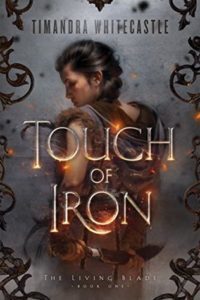 Timandra Whitecastle lives on the original Plains of Rohan (Lower Saxony) in Germany, with her family. She is a native speaker of both English and German, but she’s also fluent in Geek, Gaming, and Whale.
Timandra Whitecastle lives on the original Plains of Rohan (Lower Saxony) in Germany, with her family. She is a native speaker of both English and German, but she’s also fluent in Geek, Gaming, and Whale.
Reading is an obsession that borders on compulsion most days.
Tim has never bothered to get a life because she feels like she’s been trying to lead three different ones already – and, yes, she totally stole that line from Terry Pratchett. Also, she’s partial to Mojitos and Baileys … er, just in case you meet her in a bar and want to buy her a drink, say. (She knows people don’t actually read author’s biographies, but feels mentioning this might be worth a shot … or two.)
Tomorrow on the blog is Steven Poore, British Fantasy Awards nominated author of The Heir to the North
Sign up and get the Dragon's Blade for FREE!
January 15, 2017
Writing Journeys – Mark Lawrence
Well, what can I say? It’s incredible to have Mark Lawrence contribute to this series. To the four or five people out there who don’t know about Mark, he’s the only author other than Brandon Sanderson to win the Gemmell Legend award for best fantasy novel twice. Since 2011 he’s had two whole trilogies published and a third set to begin this year with Red Sister. But Mark doesn’t sit idle and bask in his success. There is a quote I saw recently from Kevin Spacey which struck a chord with me: “I feel it’s a responsibility for anyone who breaks through a certain ceiling to send the elevator back down and give others a helpful lift.” In setting up the Self-Published Fantasy Blog Off, Mark has repeatedly sent the lift back down. Many authors in this series have benefitted greatly from it and I hope others will in the future as the blog off grows. So thanks to Mark for everything and for writing this for me.
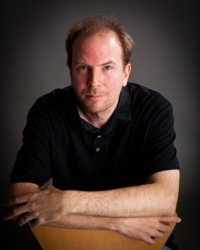 ‘Just do a piece on your writing journey so far.’
‘Just do a piece on your writing journey so far.’
It’s interesting when it’s phrased like that. Journey. A journey has a beginning, and an end. It takes you somewhere you wanted to go, shows you things you wanted to see.
So where did I begin? Was it when I told the children at nursery school a story about a crocodile in the sewers and none of them would go into the bathroom? Was it the clumsy shaping of my letters over and over, trying to keep the pencil between the generously wide lines of my practice book? Or those first disjointed stories written for a teacher who would mark only one error in ten just to keep my morale up?
I discovered recently that I was writing “grimdark” in 1976 (http://mark—lawrence.blogspot.co.uk/2016/03/i-found-old-story-of-mine-very-old-story.html)
He slowly drew out his knife. Smith waited until the man had gone past. Then he crept up behind him and plunged his knife deep into the mans back. The man fell silently to the path, the only sign of his wound was a slit in his silk shirt and a large red patch around it.
The teacher demanded that an eight year old Mark read one of his stories out to the class because she was impressed with it. I refused and got punished. I guess I found out then that I was a writer rather than an actor. Also that I had “issues” with authority figures.
An eleven year old Mark discovered Dungeons and Dragons in the year Games Workshop first opened in the UK. Suddenly all that dreaming about Lord of the Rings could be shared, built upon, used to seed whole new worlds. Suddenly I wanted to entertain people other than myself with the fruits of my imagination.
In the last year of my first degree with the imminent break up of my gaming group I discovered play-by-mail (PBM) fantasy gaming. For the year before starting my Ph.D I helped run a sizeable commercial PBM game and was effectively writing a huge multi-part interactive fantasy story full time. I kept doing it in my spare time thereafter for a decade, only giving it up when I moved to America and my day job kept me too busy.
As PBM took over when life got in the way of D&D, writing took over when life got in the way of PBM. I wrote poetry, then short stories, then longer stories. I wrote three books. The third one was better than the first two. I put it away and wrote more short stories for a few years. Even when I was writing books I was never thinking in terms of getting published. I never expected it and it wasn’t an ambition. I didn’t think of myself as an author or writer, just someone who writes.
Finally someone persuaded to make an effort to get published.
Many successful authors (and many who are successful in other fields) suffer from impostor syndrome, and to some extent I had a sense of it before I was published. The reason Prince of Thorns sat for years on my hard drive was that I felt sure that even if it was of sufficient quality the chances of getting it through the lottery of agents and publishers were slim.
Then I tried to get published and met with almost instant success. But even though I had seen the system “work” I still couldn’t help feel that there had been a lot of luck involved. So, I set up the Self-Published Fantasy Blog-Off to try to offset all that to a small degree and give other authors another ticket in the lottery.
Anyway, Prince of Thorns sold well and I’ve had a book published each year since then. That’s the Broken Empire trilogy, The Red Queen’s War trilogy, and starting soon with Red Sister, The Book of the Ancestor trilogy.
Because of the forms in which I’ve written I have always had quick feedback from my audience and a small but interested readership. So being a published author hasn’t been that huge a change for me. It’s like what I was doing already but dialled up to 11.
My duties caring for my severely disabled youngest daughter mean that I can’t travel or go to conventions, and so I haven‘t really experienced much of the “lifestyle” that can accompany modest success in genre writing. I don’t know lots of authors. I haven’t met lots of my readers. And to be honest I am OK with that. I always thought of writing as an intimate thing. A cottage industry where you have close contact with a small number of those who appreciate what you’re doing. And I have that. And it’s more than enough to keep me writing.
Did I locate the beginning of this journey? Probably not. Do I know where it’s all heading? I have no clue. It could veer over a cliff tomorrow. But I don’t really care. I’m having fun and the scenery is great. And to anyone thinking of beginning their own journey … take that first step. It’s how they all start.
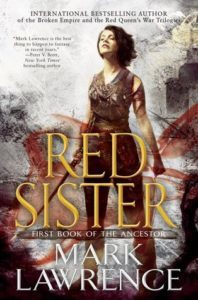 Mark Lawrence is married with four children, one of whom is severely disabled. His day job is as a research scientist focused on various rather intractable problems in the field of artificial intelligence. He has held secret level clearance with both US and UK governments. At one point he was qualified to say ‘this isn’t rocket science … oh wait, it actually is’.
Mark Lawrence is married with four children, one of whom is severely disabled. His day job is as a research scientist focused on various rather intractable problems in the field of artificial intelligence. He has held secret level clearance with both US and UK governments. At one point he was qualified to say ‘this isn’t rocket science … oh wait, it actually is’.
Between work and caring for his disabled child, Mark spends his time writing, playing computer games, tending an allotment, brewing beer, and avoiding DIY.
Tomorrow we have Timandra Whitecastle, author of A Touch of Iron.
Sign up and get the Dragon's Blade for FREE!
January 14, 2017
Writing Journeys – G. R. Matthews
Today I welcome G. R. Matthews to the blog. Many of you will know him as a FantasyFaction reviewer or judge in the Self-Published Fantasy Blog Off. He’s also a damn fine writer. I’m in the middle of the first Corin Hayes book Silent City and enjoying it thoroughly. So, over to Geoff!
 I started writing at a young age. Not preternaturally young, but young enough that the joy of stories was embedded in my heart and soul. Primary school writing lessons were the best. I’d happily scribble away in handwriting only a doctor’s most long-serving and trusted secretary could read. My teacher would be happy with my work and my mother would keep the ‘manuscripts’ forever – I know they are still in the attic somewhere.
I started writing at a young age. Not preternaturally young, but young enough that the joy of stories was embedded in my heart and soul. Primary school writing lessons were the best. I’d happily scribble away in handwriting only a doctor’s most long-serving and trusted secretary could read. My teacher would be happy with my work and my mother would keep the ‘manuscripts’ forever – I know they are still in the attic somewhere.
I suppose you can view those early efforts as my first ‘trunk’ novels. Alongside that, I read. A lot. Patrick Moore books to begin and then on to Arthur C Clarke (A Fall of Moondust is a book I still remember with great affection) and Isaac Asimov through my secondary school years. Oh, I interspersed other books amongst the heavyweights… whatever the library up the road had. Living in a small(ish) West Country village in the 70s and 80s meant there wasn’t a lot of choice around and YA was almost unheard of, but I read whatever took my fancy.
A lot of it I’ve forgotten, but those books I bought (from the bookshop in the nearby town), I still own. Elizabeth Boyer’s ‘Alfar’ series were excellent; the atmosphere, the other worldliness. Louise Cooper’s ‘Time Master’ series has a place in my heart. Eddings’s ‘Belgariad’ are still amongst my favourite books. Gavriel Kay’s ‘Fionavar Tapestry’. Rosenberg’s ‘Guardians of the Flame’ too. Kurtz’s Deryni saga. Lyndon Hardy’s ‘Master of the Five Magics’. My roots are there.
Sunday afternoons of D&D with the local club to fire up the imagination. Dreams of writing novels, recorded in journals and on loose leafed paper, were hidden in drawers and cupboards. ZX Spectrum, C64 and Amiga games littered my teenage years. All fertile ground for the seeds of imagination to germinate.
Do you know the biggest barrier to my writing a novel? Chapter three. That was the ultimate barrier, the road block, stumbling block, unsolvable Rubik’s Cube, and unclimbable mountain in my path to success (I’m still climbing). I have so many books that never made it past chapter three. Some of that may have been a lack of desire, of laziness, a lack of instant gratification… writing books is hard work. Anyone who thinks it is easy is wrong. Dead wrong.
I tried to climb that mountain, battle that cave troll and solve the cube for years, but nothing worked and I drifted away. I still read, still had the desire to write and tell stories. How to do it? Sharpen my sword? Buy a book of solutions? Some better quality rope?
My solution was more simple that any of those. I decided to learn how to write, to study writing and build my toolkit as I did so. And that’s really what writing is; using personal tools, honed and sharpened by your past and present, hopes for the future, influences, expectations, dreams and disappointments, to craft the story you want to tell. Along the way, you pick up tips and tricks. Little ideas that blossom into full-blown devices that drive your characters and plot forward.
Three years of study, part-time, alongside my career and family, wife and two young kids. They’d go to bed, and sometimes stay there, but not always, and I’d get on with reading, writing and redrafting. Workshops for feedback, online and personal ones. Tutor days at colleges and university. Pushing the boundary of likes and dislikes. Poetry, never my favourite but I found some I liked a lot and can admire the cleverness of the poet themselves – selecting words for their texture, flavour, and harmony like the finest 3* Michelin chef (I may have just watched the Masterchef final… influences, eh?)
From those three years of study, The Stone Road was created. The original idea, as I’ve documented elsewhere, comes from a line or two in China; A History by John Keay, a book I was reading while completing my final year. Two or three lines of an old myth about two warring states and the cunning scheme one came up with to destroy the other. Even that fount of all knowledge, Wikipedia, has little information on the events that took place in around 316BC. However, with that spark, the book not Wiki, and a love of Kung Fu movies, the series took shape.
It wasn’t fully formed when I began. It was a notion, an idea and direction. I knew the format I wanted to use, the points of view and even a little about the characters. I was pretty sure of the some of the tropes and clichés to avoid and which ones I wanted to play with. Would it be a single book or a trilogy? I mean, every fantasy fan loves a trilogy.
Better than that, one of my co-workers was authoring away at the same time, both of us completing our first books. The chats, discussions, shared battles and victories over the keyboard were invaluable. It also provided a lot of the motivation to keep going. A lot of writers write in solitary, but there is something to be said for sharing your woes and angst as you go.
Book 2, The Blue Mountain took the story forward, but of more import to me were the little hints I’d dropped in Book 1 bore fruit and some that I hadn’t realised I’d dropped came to the fore. Even better, if such could exist, was Corin’s birth.
One Sunday morning, I wrote a short story. That is to say, I started it and got to four thousand words that day. By fifteen thousand the story was done and less than a week had passed. I liked the character and the voice, but it wasn’t finished. I knew that. It niggled away. Always there. A burning ember in the back of my mind while I finished The Blue Mountain and got The Red Plains underway.
And then, three-quarters of the way through The Red Plains, Corin came back with a vengeance. I’d been teaching Creative Writing and discussing planning and plotting with my students. We’d looked at the TV for different models and one of them seemed to fit Corin… so I used it and wrote it. Took those fifteen thousand words, excised a few thousand, rejigged a few thousand more and added to it. That ember had become a roaring fire that had to be given fuel to burn.
Along the way, I started writing for Fantasy-Faction – reviewing books, writing articles, and getting involved in the two SPFBO competitions so far have been an amazing learning experience. And I suppose that’s the key to writing; you never stop learning and improving.
One of the best things took place this year. I went to BristolCon and met up with some of my beta readers and fans (I have fans… it is still a shock to me). They’d brought some bookmarks, with quotes from the books on them. One of them wore a dress, self-designed and covered in quotes. A scarf based on Corin Hayes’s adventures. And we drank the day and night away… it was great fun and reaffirming (and hangover making).
Now I am on to writing Corin Hayes book 3, a series where you don’t need to read in order, each adventure is self-contained and darkly humorous (so I am told), plus a new Work In Progress that so far I’ve described as ‘The A-Team meets World of Warcraft’… and that’s quite often about as firm as my ideas get until I put digit to keyboard. Along the way I make notes, draw up scenes, think of clues, ideas and plot lines… a lot of which I abandon or change along the way. That’s my style of writing.
Even I don’t know the ending till I get there.
Makes it more exciting. Now, where did I leave Corin… ah yes, he was about to get punched. Poor Corin.
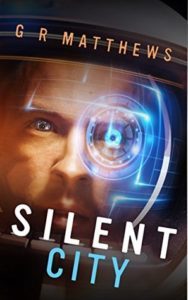 Geoff Matthews began reading in the cot. His mother, at her wits end with the constant noise and unceasing activity, would plop him down on the soft mattress with an encyclopaedia full of pictures then quietly slip from the room. His father, ever the pragmatist, declared, that they should, “throw the noisy bugger out of the window.” Happily this event never came to pass (or if it did Geoff bounced well). Growing up, he spent Sunday afternoons on the sofa watching westerns and Bond movies with the self-same parent who had once wished to defenestrate him. When not watching the six-gun heroes or spies being out-acted by their own eyebrows he devoured books like a hungry wolf in the dead of winter. Beginning with Patrick Moore and Arthur C Clarke he soon moved on to Isaac Asimov. However, one wet afternoon in a book shop in his home town, not far from the standing stones of Avebury, he came across a book by David Eddings – and soon Sci-Fi gave way to Fantasy. Many years later, Geoff finally realised a dream and published his own fantasy novel, The Stone Road, in the hopes that other hungry wolves out there would find a hearty meal. You can follow him on twitter @G_R_Matthews or visit his website at www.grmatthews.com
Geoff Matthews began reading in the cot. His mother, at her wits end with the constant noise and unceasing activity, would plop him down on the soft mattress with an encyclopaedia full of pictures then quietly slip from the room. His father, ever the pragmatist, declared, that they should, “throw the noisy bugger out of the window.” Happily this event never came to pass (or if it did Geoff bounced well). Growing up, he spent Sunday afternoons on the sofa watching westerns and Bond movies with the self-same parent who had once wished to defenestrate him. When not watching the six-gun heroes or spies being out-acted by their own eyebrows he devoured books like a hungry wolf in the dead of winter. Beginning with Patrick Moore and Arthur C Clarke he soon moved on to Isaac Asimov. However, one wet afternoon in a book shop in his home town, not far from the standing stones of Avebury, he came across a book by David Eddings – and soon Sci-Fi gave way to Fantasy. Many years later, Geoff finally realised a dream and published his own fantasy novel, The Stone Road, in the hopes that other hungry wolves out there would find a hearty meal. You can follow him on twitter @G_R_Matthews or visit his website at www.grmatthews.com
Come back tomorrow for a post from an author who needs little introduction – Mr. Mark Lawrence!
Sign up and get the Dragon's Blade for FREE!
January 13, 2017
Writing Journeys – Anna Smith-Spark
Today we have the soon to be published author Anna Smith-Spark. Anna’s debut The Court of Broken Knives will kick off her dark fantasy trilogy this summer. This time next year, you’ll know her as ‘Queen of Grimdark.’ Anna also wins the contest for most bad ass convention wear! Spikes, spikes and black spikes! So, over to Anna….
The short answer is that I’ve always written. From the evidence of the illegible notebooks I filled with… something as a child, I’ve been writing since before I could actually strictly speaking, you know, write. Other children played with toys. I ran around making up stories. In the best fantasy tradition, the characters in them often had names so baroque I couldn’t remember them. Sometimes I had to write the names down on scraps of paper and pin them to the inside of my coat. And they were always fantasy stories. I grew up reading ancient history, Greek and Norse mythology, Alan Garner, C S Lewis, Rosemary Sutcliffe, Joan Atkin, watching the Dark Crystal and Labyrinth, playing endless games of Kingmaker and Talisman. Fantasy soaked into me. Looking back, I suspect some of the characters in The Court of Broken Knives have been there in embryo in my mind since primary school.
So: I didn’t come to writing. I’ve always written. My father writes. Most of his friends write. There’s never been a time I didn’t see ‘being an author’ as the ultimate goal of my life. You grow up seeing a postcard on your father’s wall saying ‘You must write as if your life depended on it’, writing just kind of happens to you. Poetry. Stories. Graphic novel scripts. Anything. Everything. Pouring out like water in the desert, to quote my own book. Epic fantasy. Urban fantasy. Horror. Sci fi. Reams and reams of it. Worlds upon worlds upon worlds upon worlds.
Same old thing most writers say, yeah? Probably really making any aspiring authors out there feel hopelessly depressed. Oh, darling, writing, it’s not something I ever had to work at. Easiest most natural thing in the world. Oh, really, honestly, it’s a frightful bore sometimes, to be honest, this whole needing to write thing. A feeling comes over me. I can’t control it. I simply have to ignore trivialities like going to work or cooking the dinner, run to sit down in my beautifully appointed private writing chamber, and before I can even think I’ve written the complete Malazan Book of the Fallen and The Lord of the Rings. I couldn’t stop it if I wanted to. It’s all just so easy, yes?
Easy. Yes.
Except that then…. it stopped.
I stopped.
I still don’t know why I stopped. The usual things, really, I suppose. A boyfriend who hurt me and called me filth and nothing; another boyfriend who sneered at me for liking books with nice bright shiny covers with pictures of dragons on them; another boyfriend who sneered at me for thinking and writing and generally having a mind. And then life, work, money worries, needing to try to get on and get by in an increasingly frighteningly complex world. But more than that, the idea of me writing somehow became something impossible to contemplate. A thing better, more beautiful, more capable, more deserving people did. Not a thing for people like me. From being as natural as breathing, writing became unachievable. Like if I said to you ‘tomorrow I’m going to win a Nobel Prize and become Prime Minister and fly a rocket to the moon’. Not something that happens. Like becoming a film star or a Premiership footballer or something. Like winning the lottery. Like finding out you’re actually the thousand years’ prophesied Chosen One.
So I stopped writing. And little by little I stopped reading fantasy. The utter grief that these books I loved had been written by someone blessed enough to actually be the Chosen One, and I was there a nothing person looking up at them all shining and beautiful and godlike and they’d been chosen and I wasn’t worthy of anything. Going into the fantasy section in bookshops hurt. Pain and guilt welled in me, for being a failure, for not being deserving enough to be able to write. All these people who had written something! Actually been worthy of writing! Every one of them like a rusty knife blade twisting in my heart. I read and reread thick nineteenth century novels by acknowledged geniuses. It doesn’t hurt quite so bad that you’re never going to be George Elliot, now, does it? Nobody’s ever going to be George Elliot. Also, George Elliot probably really did have a beautifully appointed private writing room. And servants to do the work and cook the dinner and wash up.
You might have already worked that out from the above paragraphs that various things were going wrong in my life at this point, possibly rather more fundamental even than not being able to write. In which case, congratulations, you’re about ten years quicker on the uptake than I was. Depression and anxiety and all that jazz. In fact, thinking about it, while I’m on the subject here, really, believe me, don’t listen to anyone ever who tells you it’s creative and interestingly artistic and all romantic, like, to be depressed. It’s not. Depression’s a tiny dark room shutting your mind in. A stinking corpse tied round your neck. It fucks you up. It fucks up everyone you love. Oh, there were good bits, of course. Happy moments. Beloved family and friends. Educational successes. Work successes. I think I even wrote one poem. Prozac, psychotherapy, CBT, etc etc, slowly starting putting me back together again. I got diagnosed as having Asperger’s syndrome and that was a huge thing. All the weird bits of my life where I felt totally alone and inferior suddenly making some sense to me. Some of the things wrong in my life slowly getting better. Some slowly stopping hurting quite so badly. Some at least having an explanation for why they hurt.
And then one day, in a bookshop…… I owe a huge debt to Mark Lawrence and his agent Ian Drury and his publisher HarperVoyager and his cover artist Jason Chan, because one day in a bookshop I was walking past the fantasy display heading for ‘Very Serious Old Novels’ and I saw Jorge Ancrath brooding at me from the cover of Prince of Thorns and my knees buckled and my heart leapt in wonder and it was like the sun coming up in the sky after the dark of the night and nothing was ever the same.
That’s me all over. Never mind elven wisdom and high enchantments and the last desperate struggle for mankind. What finally brought me back to fantasy and to writing was getting a big crush on a small picture of a fucked-up underage fictional sociopath.
You thought the whole Queen of Grimdark shtick was an act?
So I burned through young Jorge’s jolly adventures, and I moved on to Jo Abercrombie and R Scott Bakker and Kingkiller and ASoIaF and Malazan. But somehow things were different now, reading. The influence of the Prozac, maybe. Or the Asperger’s diagnosis. Or sweet dear Jorgy. Or the gods alone know what. These were good books. Great books. But…. not that great. Not like the authors were really all shining and beautiful and godlike and so so so so much better than I could be. They’d done it. I could. Maybe?
Words started coming into my head. Stories. Scenes. I wanted to write.
At first there were always excuses. There are always excuses for not writing. I have a job, I have responsibilities, I’m tired, if I’m going to write I need to take years away from everything, write in silent isolation, sit alone with my inspiration, commune with the written word. I can’t. I can’t. I can’t. I finally started writing one day after semi-pulling a sicky, in bed, alone, in silent isolation and all. The next day I carried on writing, on the train into work. On the train home again. Hunched up on the sofa when everyone else had gone to bed. I started writing at work, pretending to be doing my emails. I remembered that you don’t need years away from everything, alone with your inspiration. I remembered that there’s not some special magic calling, like you get a magic glowing letter letting you into the special people club like Harry – may his name be cursed eternally – Potter, does. You just write. You delete a lot. You rewrite a lot. You bang the keyboard. You’re finally actually getting somewhere when you have to stop to go to work, cook the dinner, wash up the dinner, look after your family, go to bed. Unless you bought a house twenty years ago, you definitely don’t have a beautifully appointed private writing room. It’s not easy. It’s not always enjoyable. It certainly doesn’t just unstoppably come. Mostly you think everything you’ve written is rubbish. You force yourself to write through it and carry on.
In a year writing on the train and at work and on the sofa after bedtime, I wrote a book called The Court of Broken Knives. It was taken on by Ian Drury as my agent. It will be published in June by HarperVoyager. I haven’t seen the cover yet, but I guess there’s a remote possibility it might be drawn by Jason Chan.
And ain’t that absurdly neat?
And that’s how I came to write.
There are lessons you can learn from all this. So obvious I won’t bother writing them down. All I will say to anyone who dreams about writing is: Write.
Write. Write. Write.
Go to work and cook the dinner and wash up the dinner and look after your family and somehow in between all that, you can and will find time to write. There’s no magic. No secret. No divine special higher thing.
Write.
Anna Smith-Spark lives in London, UK. She loves grimdark and epic fantasy and historical military fiction. Anna has a BA in Classics, an MA in history and a PhD in English Literature. She has previously been published in the Fortean Times and the poetry website www.greatworks.org. Previous jobs include petty bureaucrat, English teacher and fetish model. Anna’s favourite authors and key influences are R. Scott Bakker, Steve Erikson, M. John Harrison, Ursula Le Guin, Mary Stewart and Mary Renault. She spent several years as an obsessive D&D player. She can often be spotted at sff conventions wearing very unusual shoes.
Twitter: @queenofgrimdark
Join me tomorrow to hear from author and FantasyFaction reviewer G. R. Matthews!
Sign up and get the Dragon's Blade for FREE!
January 12, 2017
Writing Journeys – Ben Galley
It’s a real pleasure to have Ben on the blog today. Ben was the first real author friend I made. This was back at FantasyCon in Nottingham in 2015. It’s not even a full 18 months ago but I look back on my past self and shake my head – I was running around at that con as yet unpublished, naive and a little too squeaky-voiced around big name authors there. What an embarrassment. I didn’t know as much I ought to have but I knew about Ben Galley, and how he was this big-time self-published guy, and he was young when he did it too, and I thought ‘hey, I should say hi’. Ben was kind enough to grab a few pints with me and pass on some wisdom. Since then he’s been excellent company at other conventions, cheering my successes with me and helping me get through some of the rougher patches. An all round great guy. And this is his journey…
For anybody knows me as a fantasy writer, I’m a series man. I came into the book industry writing a series and will probably go out writing one too. Why? I’ve said in the past I have too many ideas for one book, that the characters deserve more page-time, that it’s better for the reader or that the story can’t just end there. It has to go on. In truth, however it’s because I was scared of saying goodbye. So much so, in fact, that I’ve come up with sequel series to my existing series, and dozens of short stories in between (in themselves forming a series, naturally.)
In writing this blog for Michael, I had to some deep thinking, so I took myself back to the start of my author career, and looked at the emotions that drove me to write.
Firstly, I was bored. I was desperately bored. In 2008, I’d just finished two years studying bass at the Academy of Contemporary Music, with the all-consuming intention to be a professional musician. I worked and I worked at it, but I never managed to shake the feeling I’d missed the boat. The independent music revolution had started some five years before this, and the market was already saturated. I made headway, but never enough to get me out of the dead-end jobs I was working in bars, pubs and a pasty kiosk.
Those jobs are worthwhile to many, but to me I felt as though I languished. I recalled the day a friend handed me a copy of American Gods, and I devoured it between shifts, after shifts, even during shifts. It took several days, but when I was finished, I was so enraptured by the story and the writing, it ignited a passion I hadn’t felt since enrolling in the ACM. A passion I hadn’t felt since my early teens, when all I did was write. I had three books under my belt by age 13, and all I’d wanted to be was an author, before music and school and growing up distracted me. That dream came rushing back to me, and Mr. Gaiman reminded me of my love for words, and made-up worlds. One sunny lunch break, I decided that was it. No more. I would write my way into a life of my own design.
Just over 18 months later, I slammed my laptop down on a finished draft. It was called The Written, and I had poured every waking moment into it. Most of it was written on my phone between customers, just to get it done quicker.
When you spend so much time on something, pour so many hours into it, you don’t want to say goodbye. I had fallen in love with The Written, its world, and the stubborn fire mage that was its namesake. I didn’t want to stop writing his downfalls and narrow escapes. And it wasn’t just the love of writing that kept me hooked. This book, these characters, formed the vessel of my hope and determination. They embodied my fresh start. I couldn’t just leave them by the wayside.
I found justification when I started to self-publish, and gleaned advice that told me a series is better for success, as readers can buy into a series, and stay in for the long-haul. It was like telling an addict it’s perfectly okay to indulge themselves. A solid case for a series had been built, and on I went, writing and releasing the sequels Pale Kings, Dead Stars and Dead Stars Part 2 over the next two years.
Then I had a problem. As much as I enjoyed writing Farden and Emaneska, the story arc had come to an end. To try to stretch it out, keep it going, would have sacrificed the story’s quality and truth. I knew I had to move on. Even then, I wrote the ending open so I could scuttle back to it whenever I wanted, like a book booty call.
I had placed so much importance on that series, as if the very completion of it would assure the accomplishment of my dream. In a way, it already had: I’d changed careers to something more writing-friendly. I was making sales and the good reviews had started rolling in. I was on my way, but not there yet. My reckoning was that if one series could get me this far, another one would push me over that imaginary finish line in my head. And so, I embarked on another series.
This one was different, however. It had to be. I still had Emaneska floating around my mind, but I had become fascinated by the idea of western fantasy. Once again, I was enraptured by a new cast of characters, and a new world. Before long, I was building another soaring story arc, and embedding myself in a trilogy – The Scarlet Star Trilogy.
The Scarlet Star books got me over that imaginary finish line. It enabled me write full-time, and has won me competitions and awards. The problem with finish lines that are set by the person running the race though, is that they can be moved. Ask the 2010 Ben Galley in the pasty kiosk whether I’d made it and he would cry agreement at the top of his lungs. Ask me at the end of Bloodfeud, and I wanted more.
Here began a personal crisis. I was writing for two reasons – one, because I adored writing and fantasy, but two – I wanted to be successful. With two series already down, and the question of “What next?” buzzing around my head, those two were clashing. I was blinded to what I’d already accomplished by constantly looking forwards, and being desperate to accomplish more. This is a natural state for a writer, I’m told, and while it can drive you to great productivity, it can also be stressful. It was starting to feel more like work than fun, and that’s dangerous.
At the end of last year, I had two other series lined up: a seven-book epic fantasy series and a YA trilogy. They would occupy my next two to three years of writing. The story and characters would have time to grow. In essence, they were comfortable. That’s why, in early 2016, I chose to do something uncomfortable – a standalone.
I thought back to American Gods, and how the story, like so many of my childhood favourites, was self-contained and whole. You could sit down for a weekend and go start to finish without waiting a year for a sequel. The prose was cut-throat, the characters vivid without spending pages building depth, and the world mysterious by allusion not by explanation. In every page you can tell that book is for Shadow, and that the reader is simply there for the ride. I wanted to do that, to get back to the passion I had for writing. To focus solely on what story I’m telling.
Writing The Heart of Stone pushed me into areas I feared, made me question my skill, change my writing style, and Task kept me up later than Farden or Tonmerion ever did. I didn’t want to say goodbye to him at the end, but I did it anyway.
The Heart of Stone taught me a lot. Naturally, it taught me how to write a self-contained, one-book story, but it also helped me rediscover my passion, and taught me the value of putting the story front and centre. I have learnt that I’m not a writer because people buy or review my books, I’m a writer because I have stories to tell.
Currently, I’m straining at the bit to release The Heart of Stone, but in the meantime I’ve started a new project – another standalone, would you believe it. I can’t tear myself away. I keep checking my emails and to-do list because somehow it feels like I’m cheating to be having so much fun doing, what effectively is, my day job. If I look back, that’s exactly what that twenty-three year-old in a pasty kiosk wanted.
 Ben Galley is a best-selling purveyor of tall tales and dark fantasy from the UK. He is the author behind the gritty and epic Emaneska Series, as well as his new western fantasy series, the Scarlet Star Trilogy.
Ben Galley is a best-selling purveyor of tall tales and dark fantasy from the UK. He is the author behind the gritty and epic Emaneska Series, as well as his new western fantasy series, the Scarlet Star Trilogy.
Aside from writing and dreaming up lies to tell his readers, Ben works as a self-publishing consultant and tutor, helping fellow authors from all over the world to publish and sell books. His website www.shelfhelp.info will tell you all you need to know about DIY self-publishing.
Ben can be found being loquacious and attempting to be witty on Twitter (@BenGalley), Facebook (/BenGalleyAuthor) or at his website www.bengalley.com.
Join me tomorrow in hearing from Anna Smith-Spark. Anna’s first book (The Court of Broken Knives) is due for release this summer from Harper Voyager!
Sign up and get the Dragon's Blade for FREE!
January 11, 2017
Writing Journeys – Mark Stay
Today’s guest offers something a little different. Mark Stay is a screenwriter, author, and podcast extraordinaire. The man has a lot of hats. The podcast in question is the Bestseller Experiment, in which Mark and his co-host are determined to write and publish a bestselling novel in one year. They bring on many famous authors as guests to chat about writing and publishing. For you fantasy buffs, there are episodes with Joane Harris and Joe Abercrombie! Well worth checking out. And now, the post.
Screenwriting is an oddity in the written arts in that it’s the only one that I can think of where the end user never gets to read the thing the writer has been slaving over. A poet writes a poem and can get it published in an anthology, or she can read it aloud to her friends and family (but only if she really hates them), a novelist can get published or self-published for all to read, plays are published for actors to act, a blogger can vent via the miracle of the internet, and even Donald Trump can treat us to his daily brain-spunk via Twitter.
By the time the film is finished, the screenplay is completely disposed of, the labour of the poor screenwriter (okay, yes, let’s include playwrights in this, too, the sad sods) destined to be lost forever as a Final Draft file in some Line Producer’s laptop.
Oh, sure, you can buy screenplays of a few of the smash hit movies, and even download free PDFs of scripts online from some reliable sources (during awards season), but when did you ever have a friend urge you to go to the movies because they’d read the script beforehand and heard it was awesome? (Let’s exclude screenwriters from this: they do this all the bloody time). And even when people do acknowledge that there was a script, they’ll often only talk about the quality of the dialogue, and isn’t it amazing how the actors improvised the dialogue, because that’s all a screenplay is, right? Dialogue?! Gah!
Deep breath. Rant over. Enough bitterness. I love screenwriting, I really do. I love the collaborative nature of the writing, I love the form and mystery of the screenplay, with its beats, sequences, scenes and slug lines, and I especially love the thrill that comes when someone eventually makes one of your scripts and you get to see it on the big screen with an audience.
This last doesn’t happen too often, however. At least, not to me. A great deal of a screenwriter’s life is spent in meetings or pitching for work. What happens is a production company will have a property that they want to make into a TV show or a movie, and you go along for a meeting arranged by your agent, or they’ll ask you to pitch your take. ‘Just send us a one-pager,’ they’ll say, meaning please send us a page outlining your vision for the story. Of course, to get to that one page, I will usually write somewhere in the region of eight to ten pages, and then spend an inordinate amount of time whittling those ramblings down into a page or two.
Then, you need to forget about it, because precisely nothing will happen for about six to eight weeks, during which time you will have more meetings and more requests for one pagers, and the cycle will continue, and, after six to eight weeks, they will tell you how they love your take, but it wasn’t quite right, or that they love your take, and now they just need to find the funding… It’s often exciting, especially when you meet with the big gun studios, but very competitive, and it can get a little dispiriting when you look back on a year of solid writing and nothing has been made (yet), and friends and relatives outside of the industry wonder why you gave up screenwriting, because you were so good at it, and they made that film of yours didn’t they? And why hasn’t there been a sequel…?
Which is why I have a happy place. Secret writing projects that I return to while waiting for the film industry to make a decision.
They’re books. Novels, in fact.
This all came out of necessity really. I’ve been pitching original ideas as movies, but, as any cinemagoer will tell you, the studios aren’t that interested in original ideas these days. The financial stakes are too high for anything original, especially if you write one of the more fantastical genres, as I do (the exception being horror, which can be made cheap as chips and, crucially, be profitable on release). They’re more interested in brands. Intellectual properties with pre-existing fan bases (however small), that can convince the money people that there is an audience for the film.
So, I’ve taken these original ideas and started writing them as novels. One is a children’s book, another will be a comic book, and another will be a fantasy novel. That’s not to say that it’s much easier to get these published in a mass market form, but the risk in getting these seen is tiny when compared with the craps game of modern movie making.
The fantasy novel is the one I’ve finished first. I’ve run it through beta-readers, made copious changes thanks to their notes, and paid for an editor to give it a good kicking, before sending it to an agent, who is now sending it out to publishers (who can still reject it).
But it’s mine. All mine.
And that’s important.
It’s my world, my fantasy, my rules, and therein lies the huge appeal of fantasy to a writer. From my first encounters with Ursula K Le Guin, David Eddings and Tolkein, through to the grimdark imaginings of George RR Martin, Joe Abercrombie and Scott Lynch, fantasy is the purest form of escapism to me. It’s not always a pleasant or jolly read, and it’s come a long way from the high fantasy of yore, but the appeal of stepping into another world is overwhelming, and the challenge of creating one of my own, on a fairly epic scale beyond the reach of most film studio budgets, was one I simply couldn’t resist.
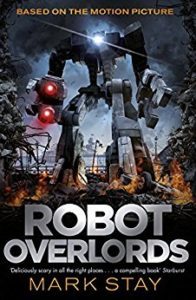 Again and again, I had to tell myself, ‘You can do this!’ when employing magical creatures and settings. I didn’t have that screenwriting voice in the back of my head with its niggling worries about VFX budgets, expensive location shoots, and casts of thousands… I could just put them on the page, and it made me very, very happy.
Again and again, I had to tell myself, ‘You can do this!’ when employing magical creatures and settings. I didn’t have that screenwriting voice in the back of my head with its niggling worries about VFX budgets, expensive location shoots, and casts of thousands… I could just put them on the page, and it made me very, very happy.
I’ve created a world and characters that I hope to come back to again and again. Even if every publisher rejects it, I’ll keep writing, if only for that dopamine hit I get when opening the files. This must be what God feels like every morning (and who said writers were narcissists?).
Yes, I’ll keep writing screenplays, I’ll keep going to the meetings, I’ll keep sending the one-pagers, but now all safely in the knowledge that I have a world to go to that’s all mine.
 Mark Stay co-wrote
the movie Robot Overlords, which premiered at the 58th BFI London Film Festival and starred Sir Ben Kingsley and Gillian Anderson
. He also wrote
the novelisation, published by Gollancz
, and he is co-founder of
the Bestseller Experiment podcast,
where he and fellow writer Mark Desvaux have pledged to write a bestselling self-published novel in a year.
Mark Stay co-wrote
the movie Robot Overlords, which premiered at the 58th BFI London Film Festival and starred Sir Ben Kingsley and Gillian Anderson
. He also wrote
the novelisation, published by Gollancz
, and he is co-founder of
the Bestseller Experiment podcast,
where he and fellow writer Mark Desvaux have pledged to write a bestselling self-published novel in a year.
Come back tomorrow to hear from none other than Ben Galley, a purveyor of dark fantasy and self-publishing guru.
Sign up and get the Dragon's Blade for FREE!
January 10, 2017
Writing Journeys – Dyrk Ashton
Today on the blog we have Dyrk Ashton, author of Paternus. Dyrk’s debut novel released to much acclaim in 2016, joining our previous guest Phil Tucker as a finalist in the Self-Published Fantasy Blog Off. To reach the final, Paternus received a 9/10 from FantasyFaction – it really doesn’t get much better than that. Over to Dyrk!
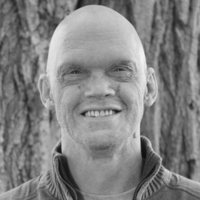 Thank you for asking me to participate on your blog, Michael. A privilege and an honor, sir.
Thank you for asking me to participate on your blog, Michael. A privilege and an honor, sir.
Hello everyone. I’ve been asked to elucidate upon my writing journey to date and how I came to be writing my current novel or series. I’ve addressed this a number of times in the past, so I think I should do something a little different. Maybe a little more open and honest.
I’m a compulsive liar. Always have been. Deep down. Not anymore, I keep the compulsion in a tiny cage these days, that little daemon. But growing up it ran free. I was always a teller of tales. I think a great part of how I control the beast these days is by writing fiction. It’s not a new insight, but fiction is lies. There are all manner of pontifications about fiction revealing “Truth” or “truths,” and I absolutely believe that, but so can outright lies – they can disclose truths about a great many things. The best thing about fiction, though, is that we all know it’s fiction. And fantasy, my chosen genre in which to dabble, is the most fictional of fiction. The best fantasy, in my opinion, is told with the same earnestness as an outright lie. I’m not talking about boastful lying or white lies, but the gotta-make-people-believe-this-to-save-my ass kind of lying. I have to write fantasy that way. It’s why I love Tolkien’s lies and Zelazny’s and Bradbury’s and Pratchett’s lies. Because goddam I believe that shit. Can I write like them? Hell no. Not even close. But I can attempt the same kind of desperate earnestness to make people believe. Again I say attempt. Succeeding is something entirely other, and is not up to me in the slightest. It’s up to you, the reader, the listener to my fantastical fibs.
So I like to tell stories and have always wanted to tell a fantasy tale in novel form, since as long ago as I can remember. Only recently, in the last five years, have I had the time and gumption and, honestly, maturity, to do it. So I grabbed what time I could while working my day job, forced myself to be terribly selfish with “my writing time,” and wrote even when I didn’t want to. For several of those years (working on the same book, by the way), I didn’t care if anyone would ever want to read eat. I was just trying this, then that, finding what worked for me and what didn’t, doing a ton of fun research and making a bunch of shit up, and, in spite of anything else I might say, having a hell of a lot of fun, even when it sucked. To be honest, though, since I try not to lie (so much) anymore, I’m sure in the back of my mind I hoped people would want to read it. Still, I set out to write something I wanted to read and to write it in a way I wanted to write it, regardless of market or the tastes of others. That’s a large part of why I’m shocked that anyone is reading it now, let alone liking it. It’s also why I’m not at all shocked or upset when people don’t like it, or sometimes just don’t get it, as the case sometimes may be. Thank God not everybody likes the same thing! And that should be the great joy of every writer, I think. Revel in the diversity of taste. Roll in the bad reviews, and rejoice!
But I digress, as I often do. Though I’ve been writing my whole life, in one form or another, much of the process of writing Paternus has been one long education in writing. (Paternus is my debut and only novel thus far, by the way, which has brought me to writing the second book in the trilogy, which is what I’m doing now). It was a crash course, on-the-job-training MFA in writing of sorts. I’ve learned or reacquainted myself with the “rules,” chosen what I like and discarded the rest. There are no rookie mistakes in it, only choices (good or bad as they may be).
At one point, enough folks whom I trust had told me they liked what I was doing and, in fact, it ought to be published. I decided to go ahead and give it a shot. I won’t go into self-publishing now, as that is a different creature entirely than actually writing, but suffice it to say it’s the avenue I chose to get Paternus out into the market. And it has been received well, and not so well, but mostly well, and I’m honored, thrilled and amazed. People have posted reviews. I’ve been asked to do interviews. I’ve lucked into the privilege of doing not one, but two Reddit Fantasy AMAs, and most amazingly, I’ve become a finalist in Mark Lawrence’s SPFBO. It warrants repeating, most amazing. I thought for sure I’d be out in the first round. But still, that isn’t why I keep writing. I’m writing books two and three because I want to. I have to. For me. Hopefully, some folks will like them too.
And that’s sort of a different take on my writing journey so far. Unless it’s all a lie.
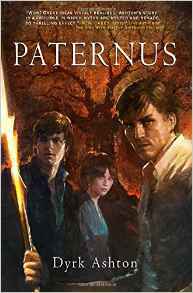 website https://www.paternusbooks.com
website https://www.paternusbooks.com
Amazon http://myBook.to/Paternus
Twitter https://twitter.com/UnDyrk
Facebook https://www.facebook.com/paternusbooks/
Instagram https://www.instagram.com/undyrk/
LinkedIn https://www.linkedin.com/in/dyrkashton
Goodreads https://www.goodreads.com/book/show/30654612-paternus
Tomorrow we’ll be heading into the world of film, as well as books, with screenwriter and author, Mark Stay!
Sign up and get the Dragon's Blade for FREE!
January 9, 2017
Writing Journeys – Jen Williams
Jen Williams Copper Cat Trilogy charmed the UK and is currently working its spell over fresh US audiences. Those fantasy enthusiasts who are in the London area will also know Jen as the co-founder(conspirator?) of the Super Relaxed Fantasy Club (SRFC… for those in the know). Her partner in crime in this club is Den Patrick, and together they’ve created a haven for fantasy nerds to flock to once a month. It’s where I’ve met many of the authors in this series. Indeed much of my growing confidence and love of writing has come from meeting so many like minded and friendly people at the SRFC. Jen herself is always a good laugh – I believe we had a longish chat discussing the merits of old Pokemon and Yu-Gi-Oh cartoons at FantasyCon last year. Anyway, you’re here for the post, so here you go.
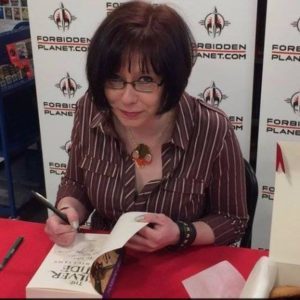 How did I come to be writing my current project?
How did I come to be writing my current project?
It’s a question I have asked myself before, many times, usually when grinding my teeth at a blank page, or sifting through a dusty mountain of post-it notes looking for the one piece of scribble that explains what this chapter was actually supposed to be about. To truly answer the question, I have to go back into the distant mists of memory. Come with me now on a journey through time, space, erratic decision-making and heavy drinking.
I first realised I wanted to write stories when I was very small indeed. One of my earliest memories, hazy with sherbet dip-dabs and My Little Pony, is of asking for a desk for Christmas. A desk seemed to me to be the genesis of all creative things, a sort of magical touchstone. With a desk, I reasoned, stories must just spontaneously generate themselves. Mostly I remember that desk being covered with glitter and prit-stick, but it was a start. Skip forward a few years and we will witness small me asking for a typewriter for my birthday (I can imagine my parents gently consigning themselves to the reality that they had somehow raised an incredibly nerdy kid) and I suppose this was where my love for telling stories really took off. The epics created at this time included the rousing classic ‘Captain Smelly Socks and his Smelly Socks’, about a pirate with a foot odour problem. If you have read my Copper Cat trilogy, you will know I’m still quite fond of pirates, although mostly they don’t smell quite so bad.
At school I developed into the sort of kid who wrote short stories where everyone died horribly at the end, or got eaten by cats (I wrote at least two of those) and to my surprise, my teachers usually loved them, even reading a couple aloud to the rest of the class – a remarkably horrifying experience for 14-year-old me, who was painfully shy. And this is where we introduce some unexpected conflict into the story, because around about this time I began to talk to the adults in my life about taking up writing as a career. Looking back, perhaps I should have spoken to the English teachers who liked my stories so much, because the response I got from everyone else was largely ‘don’t be daft’, ‘it’s too competitive’, and the slightly baffling ‘everyone wants to write books, why should you be allowed to do it?’ The thing is, when you are a young person – particularly a shy young person who prefers reading to talking to other human beings – you tend to listen to what adults tell you, and to take their advice very seriously. The problem with that of course is that a) the people I spoke to didn’t really know anything about writing, and b) adults are secretly making everything up as they go along. In conclusion, my advice to young people now wanting to be writers would be: don’t listen to anything adults tell you. There. I’m sure that advice cannot possibly backfire in any way.
Being almost subconsciously stubborn, when I left school I went to art college, where I studied the equally competitive and difficult-to-make-a-living-at business of illustration. I was reasonably good at it, but perhaps unsurprisingly, I found that what I really enjoyed was making up the stories that I then needed to illustrate… This is probably the other big lesson I learned in these formative years: writing isn’t something you choose to do, it’s something that chooses you. My degree in hand, I left art college and worked for a time in a bookshop. I fiddled about with various projects, bouncing from sketching out children’s picture books to writing the occasional grisly horror story (not as unrelated as you might think). One day, after a particularly abysmal day at work, I decided to write something to cheer myself up – rather than a short story, it was a little scene, unrelated to anything I’d written before, and to my surprise, it was part of a book. I spent the next two years finding out what the rest of that book was about.
I hope you are still with me on this slightly meandering accidental life story. For your sake I have edited out much of the heavy drinking and the Farscape marathons, and you’ll be glad to hear I’m going to skip us ahead even further – six unpublished books further, in fact. By the time The Copper Promise came into being, I had realised that writing books was indeed exactly what I wanted to do with my life (it turns out that six year old me was wise) and before I really knew where I was or how I’d managed it, I had an excellent agent and a book deal with a tremendous publisher. The Copper Promise evolved into a trilogy of sword and sorcery books where I could explore all the things I really loved about traditional fantasy – the magic, the monsters, the dungeons and the mayhem – while also having a bit of a poke at the things I often felt the genre needed to have a closer look at; gender politics and inclusivity, for example. Above all, I had a lot of fun with the Copper Cat, but I also knew that three books would be enough to tell the central stories of Wydrin, Frith, and Sebastian. I am not a fan of things outstaying their welcome, and I didn’t want to drag the trio on endless adventures when all opportunity for reasonable character development had long since bled away into the sand. Instead, I wanted to give them a cinematic, emotionally impactful finale, and with The Silver Tide, I think I just about managed it.
So what next? It’s a beast of a question. I had a blast writing the Copper Cat books, but I knew I didn’t want to write the same thing again with the character names filed off. Instead, I wanted to challenge myself… (I would think about this thought process often over the coming months, as I sweated blood over the copy edits, often laughing in a slightly unhinged manner). And so the Winnowing Flame trilogy was born, a series that is still so new I haven’t quite figured out how to talk about it yet. I always feel it’s tricky to follow the journey back to find the seeds of a book, to locate the exact moment that kicked off the creative drive, but there were a handful of key moments: a passage in a history book describing a glorious city, now falling apart and infested with wolves; the thought that if elves were a bit more human, they’d likely be very terrible people; the image of a young woman with a handful of emerald flames. In many ways the roots of the book are the same ones that nourished the Copper Cat – character driven epic fantasy full of snark and monsters – only with this trilogy I wanted to build a bigger, stranger world, and have the fates of the characters inextricably linked to it. The first book, The Ninth Rain, will be published on the 23rd of February and I’m in the middle of writing the second book, The Bitter Twins, right now. It’s an odd story, full of complicated relationships, alarming beasts and things exploding, and I think the six year old me who first sat down at her desk, glitter glue in hand, would be very proud of it – or at least amazed at its sheer length. I know I am.
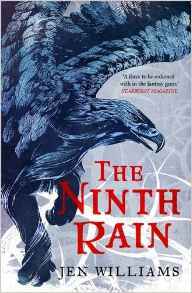 Jen Williams lives in London with her partner and their cat. A fan of pirates and dragons from an early age, these days she writes character-driven sword and sorcery novels with plenty of banter and magic, and in 2015 she was nominated for Best Newcomer in the British Fantasy Awards. The Copper Cat trilogy, consisting of The Copper Promise, The Iron Ghost and The Silver Tide, are available now in the UK and the Netherlands, and the first book in the trilogy is now available in the US and Canada. The Iron Ghost was nominated for Best Fantasy Novel in the 2016 British Fantasy Awards, and she is also partially responsible for Super Relaxed Fantasy Club. The Ninth Rain, the first book in her new trilogy, is due to be published in 2017, and she is partial to mead, if you’re buying.
Jen Williams lives in London with her partner and their cat. A fan of pirates and dragons from an early age, these days she writes character-driven sword and sorcery novels with plenty of banter and magic, and in 2015 she was nominated for Best Newcomer in the British Fantasy Awards. The Copper Cat trilogy, consisting of The Copper Promise, The Iron Ghost and The Silver Tide, are available now in the UK and the Netherlands, and the first book in the trilogy is now available in the US and Canada. The Iron Ghost was nominated for Best Fantasy Novel in the 2016 British Fantasy Awards, and she is also partially responsible for Super Relaxed Fantasy Club. The Ninth Rain, the first book in her new trilogy, is due to be published in 2017, and she is partial to mead, if you’re buying.
…right let’s see who’s on the list for tomorrow. Oh god – it’s that Dyrk Ashton fellow. Well if you like quirky authors who are big children at heart and who like silly jokes, I guess you should come back.
Sign up and get the Dragon's Blade for FREE!

